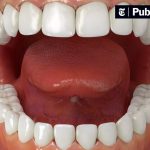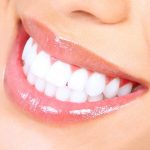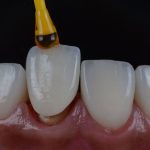Causes and Remedies: Why Do Your Teeth Hurt When Biting Down?
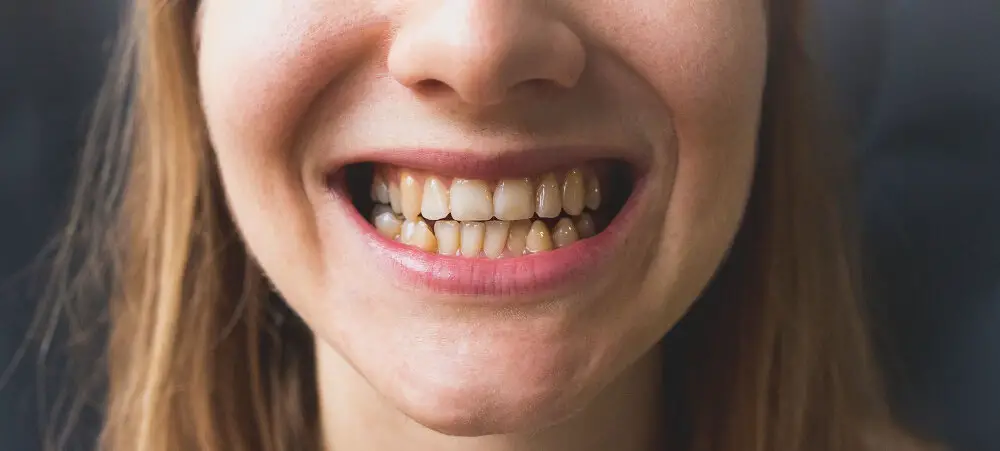
There’s nothing quite like biting into your favorite food, only to be met with a sharp, shooting pain in your teeth. Not only is it uncomfortable, but it can also be worrisome. Why do your teeth hurt when biting down? There are several potential causes, ranging from minor issues to more serious dental problems. Understanding the root cause of your discomfort is the first step in finding a solution. One common cause of tooth pain when biting down is tooth decay. When a cavity forms, it can weaken the tooth and make it more sensitive to pressure. If left untreated, the decay can spread and lead to more serious issues such as infections or even tooth loss. Another potential culprit is a cracked tooth, which can occur from biting down on something too hard or from an injury. The crack can expose the sensitive nerves inside the tooth, causing pain when pressure is applied. Whatever the cause, there are remedies available to help alleviate the discomfort and protect your dental health.
When you experience pain while biting down, it may be a sign of various dental problems. Tooth decay, gum disease, or cracked teeth are the most common causes of this problem. Tooth decay occurs when bacteria break down the tooth’s enamel, leading to cavities. Gum disease, on the other hand, causes inflammation and recession of the gums, leading to tooth sensitivity and pain. Cracked teeth can also cause biting pain as the pressure applied while chewing exerts pressure on the fracture line. In some cases, the pain may also be due to a damaged filling or a misaligned bite. In order to treat the pain while biting down, it is important to identify the underlying cause and seek professional dental care.
Identifying the cause and seeking remedies are crucial steps to address any dental problem, especially when it comes to tooth pain while biting down. Ignoring the pain or masking it with over-the-counter painkillers can lead to further damage and complications. A proper diagnosis by a dentist can reveal the underlying cause of the pain, which may include tooth decay, a cracked tooth, or gum disease. Once the cause is identified, appropriate remedies can be suggested, such as fillings, root canal therapy, or periodontal treatment. Prompt action not only relieves the pain but also prevents more significant oral health issues, ensuring a healthy and happy smile.
Causes

Teeth pain while biting down is a common dental problem, which can have various causes. One of the most common causes of this problem is tooth decay, which happens when the bacteria in your mouth produce acid that erodes your tooth enamel. If left untreated, tooth decay can cause cavities, which can lead to severe pain and sensitivity when biting down. Gum disease is another common cause of teeth pain when biting down. Gum disease occurs when the bacteria in your mouth build up around your teeth and gums, causing inflammation and infection. This can lead to tooth loss, jawbone damage, and other serious dental problems if left untreated. Another cause of teeth pain when biting down is a cracked or broken tooth. This can happen due to various reasons, such as a fall, sports injury, or biting down on something hard. A cracked or broken tooth can cause pain and sensitivity when biting down, and if left untreated, it can lead to infection and further damage to the tooth. Other causes of teeth pain when biting down include teeth grinding, misaligned teeth, and dental abscess. If you experience this problem, it is essential to consult a dentist to identify the exact cause and receive the appropriate treatment.
Tooth decay is a common dental problem that affects people of all ages. It occurs when bacteria in the mouth produce acid that eats away at the enamel, the hard outer layer of the tooth. If left untreated, the decay can progress to the deeper layers of the tooth, eventually causing a cavity. Cavities are small holes in the tooth that can cause pain and sensitivity when biting down. They can also lead to infections and other serious complications if left untreated. To prevent tooth decay and cavities, it is important to maintain good oral hygiene, such as brushing twice a day, flossing daily, and visiting the dentist regularly for checkups and cleanings.
One of the possible causes of tooth pain when biting down is cracked or chipped teeth. This can happen due to a number of reasons such as trauma, grinding or clenching, or even biting down on hard objects. Cracks can range from minor, superficial ones that do not cause much discomfort to severe ones that extend deep into the tooth and expose the nerve. Chipped teeth, on the other hand, can cause sharp pain and sensitivity when biting down. Remedies for cracked or chipped teeth include dental bonding, veneers, crowns, or in severe cases, root canal therapy or extraction may be necessary. It is important to seek professional dental care as soon as possible to prevent further damage and alleviate any discomfort.
Gum disease, or periodontal disease, is a common dental condition caused by the buildup of bacteria and plaque on the teeth and gums. This can lead to inflammation, bleeding, and eventually tooth loss if left untreated. Factors such as poor oral hygiene, smoking, hormonal changes, and certain medications can increase the risk of developing gum disease. Remedies for gum disease include regular brushing and flossing, professional cleanings, and in severe cases, surgical intervention. It is important to address gum disease early on to prevent further damage to the teeth and gums.
Temporomandibular joint (TMJ) disorder is a condition that affects the jaw joint and the surrounding muscles. It can cause pain and discomfort in the jaw, face, and neck, as well as difficulty chewing or opening the mouth. TMJ disorder can be caused by various factors, including teeth grinding, stress, trauma to the jaw, and arthritis. Remedies for TMJ disorder include practicing relaxation techniques, avoiding hard or chewy foods, using ice or heat packs, and taking over-the-counter pain relievers. In severe cases, a dentist or doctor may recommend a splint or physical therapy to help alleviate the symptoms. It is essential to seek medical attention if the pain persists or worsens over time.
Teeth grinding, also known as bruxism, is a common condition where a person unconsciously clenches or grinds their teeth, often while sleeping. It can be caused by stress, anxiety, or misaligned teeth, and can lead to headaches, jaw pain, and tooth damage. In severe cases, it can even cause hearing loss and disrupt sleep patterns. Treatment options for bruxism include stress management techniques, mouthguards to protect the teeth, and orthodontic treatment to correct misaligned teeth. If left untreated, bruxism can cause significant damage to the teeth and jaw, so it’s important to seek treatment if you suspect you may be grinding your teeth.
Sinusitis, also known as sinus infection, is a condition where the sinuses become inflamed due to infection or allergies. The sinuses are air-filled cavities located in the skull, and when they become blocked by mucus, bacteria can grow and cause an infection. Sinusitis can cause pain and pressure in the face, as well as headaches and toothache. The toothache may occur because the upper teeth are located close to the sinuses and the pressure from the inflamed sinuses can be felt in the jaw and teeth. Remedies for sinusitis include antibiotics, decongestants, and nasal sprays, as well as home remedies such as steam inhalation and drinking plenty of fluids.
Dental procedures are a set of medical practices that entail various treatments performed by a dental professional to prevent or treat dental problems. These procedures include filling cavities, tooth extraction, root canal therapy, dental implants, and teeth whitening. In some cases, dental procedures are necessary to alleviate pain and discomfort caused by dental issues such as gum disease, tooth decay, and infections. A dental professional will thoroughly evaluate the patient’s condition and recommend the most appropriate treatment procedure. Dental procedures are vital to maintaining good oral health and preventing further dental damage, and they can help patients achieve healthy teeth and gums, improved speech, and better overall health.
Remedies
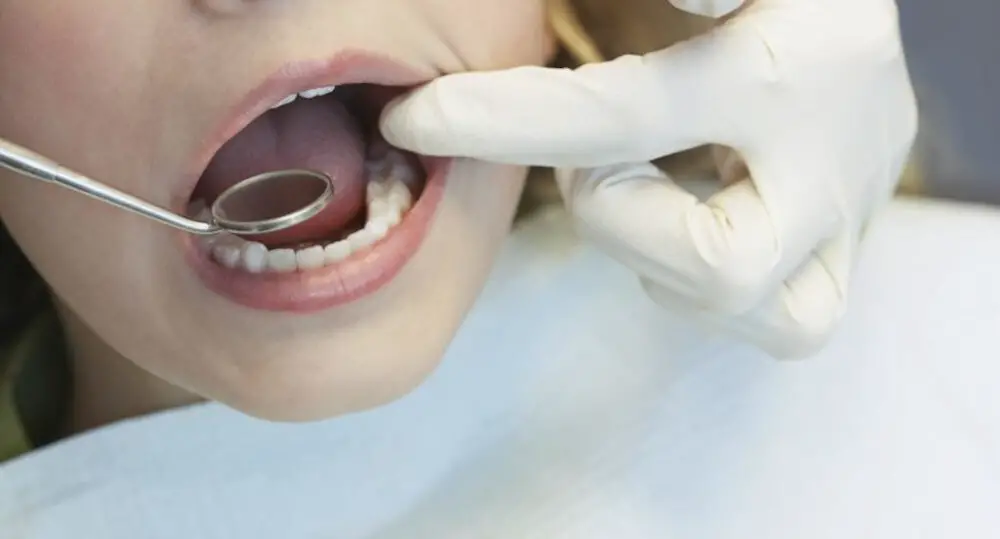
When it comes to tooth pain, there are various remedies that can alleviate discomfort and improve oral health. If your tooth pain is due to tooth decay or cavities, the dentist might recommend filling or root canal treatment to remove the decay and prevent further damage. On the other hand, if you have gum disease, the dentist might suggest scaling and root planing to remove plaque and bacteria from the teeth and gums. Additionally, over-the-counter pain relievers like ibuprofen or acetaminophen can provide temporary relief for mild tooth pain. However, it’s important to consult a dentist if your tooth pain persists or worsens. Apart from visiting a dentist, there are several home remedies that may help alleviate tooth pain. Rinsing your mouth with warm salt water can help reduce inflammation and kill harmful bacteria. Applying a cold compress on the affected area can also help reduce swelling and numb the pain. Clove oil, which contains eugenol, a natural anesthetic, can also provide temporary relief for tooth pain. You can apply a small amount of clove oil directly on the affected tooth or use it to rinse your mouth. However, it’s important to note that home remedies are not a substitute for professional dental care, and it’s crucial to seek treatment from a dentist if you’re experiencing tooth pain.
Over-the-counter pain relievers like ibuprofen, acetaminophen, and aspirin are commonly used to relieve tooth pain. These medications work by reducing inflammation and blocking pain signals in the body. Ibuprofen and aspirin are nonsteroidal anti-inflammatory drugs (NSAIDs) that can help alleviate pain and inflammation caused by toothaches. Acetaminophen, on the other hand, helps to reduce pain and fever but does not have anti-inflammatory properties. When using these medications, it is essential to follow the recommended dosage and use them only as directed. If tooth pain persists, it is crucial to seek professional dental care to identify and treat the underlying cause of the pain.
One of the simplest and most effective remedies for tooth pain caused by biting down is the use of warm or cold compresses. Applying a warm compress to the affected area can help to increase blood flow and soothe inflammation, while a cold compress can help to numb the area and reduce swelling. It is important to note that the temperature of the compress should be comfortable, as extreme temperatures can actually worsen the pain. Additionally, it is important to avoid applying the compress directly to the tooth, as this can cause further damage or sensitivity. Instead, the compress should be applied to the cheek or jaw in the area of the affected tooth.
Desensitizing toothpaste is a specialized type of toothpaste designed to alleviate the discomfort of sensitive teeth. These toothpastes contain active ingredients that block the tiny tubules in the dentin layer of the teeth, which are responsible for transmitting pain signals to the nerves. Additionally, desensitizing toothpastes contain ingredients that help to strengthen and protect the enamel of the teeth, reducing the risk of further damage and sensitivity. While desensitizing toothpaste can be effective in reducing sensitivity, it is important to use it as directed and to continue practicing good oral hygiene habits, such as regular brushing and flossing, to maintain healthy teeth and gums.
Mouthguards are a popular remedy for teeth grinding, also known as bruxism. These devices are designed to protect the teeth from damage caused by clenching and grinding during sleep. Mouthguards can be custom-made by a dentist to fit the patient’s teeth precisely, or they can be purchased over-the-counter at a drugstore. They typically cover the upper teeth and are made of a soft, pliable material that cushions the teeth and prevents them from grinding against each other. Mouthguards can be highly effective at reducing the symptoms of bruxism, including jaw pain, headaches, and tooth sensitivity. However, they do not address the underlying causes of the condition, which can include stress, anxiety, and sleep disorders.
Corrective dental procedures are essential in treating dental problems that cause pain when biting down. Fillings are commonly used to treat cavities caused by decay. Crowns are used to cover a damaged tooth to protect it from further damage. Root canals are performed when the pulp of the tooth is infected, and a procedure is necessary to remove the infected tissue to save the tooth. There are also other procedures, such as dental implants and bridges, to replace missing teeth. These procedures help alleviate the pain and discomfort caused by dental problems and restore the functionality of your teeth. It is important to consult with a dental professional to determine the best course of action for your specific dental issue.
TMJ, or temporomandibular joint disorder, is a condition that can cause pain and discomfort in the jaw joint and muscles. This can be caused by a variety of factors, including teeth grinding, stress, or a misaligned bite. Treatment for TMJ may include a combination of therapies, such as oral appliances to reposition the jaw, physical therapy to strengthen the jaw muscles, and medication to manage pain and inflammation. In some cases, surgery may be necessary to correct structural issues in the jaw. It is important to seek treatment for TMJ to prevent further damage to the joint and alleviate pain and discomfort.
While sinusitis can be an incredibly uncomfortable condition, it is fortunately treatable. In many cases, the condition will clear up on its own within a week or two, with the help of over-the-counter pain relievers and decongestants. However, for those with more severe symptoms or long-lasting sinusitis, a doctor may prescribe antibiotics or steroids to help clear up the infection. Home remedies such as saline nasal sprays, steam inhalation, and warm compresses may also provide some relief. In rare cases, surgery may be necessary to correct structural problems in the sinuses that are causing the condition. Regardless of the treatment plan, it’s important to address sinusitis as soon as possible to prevent further complications.
Prevention
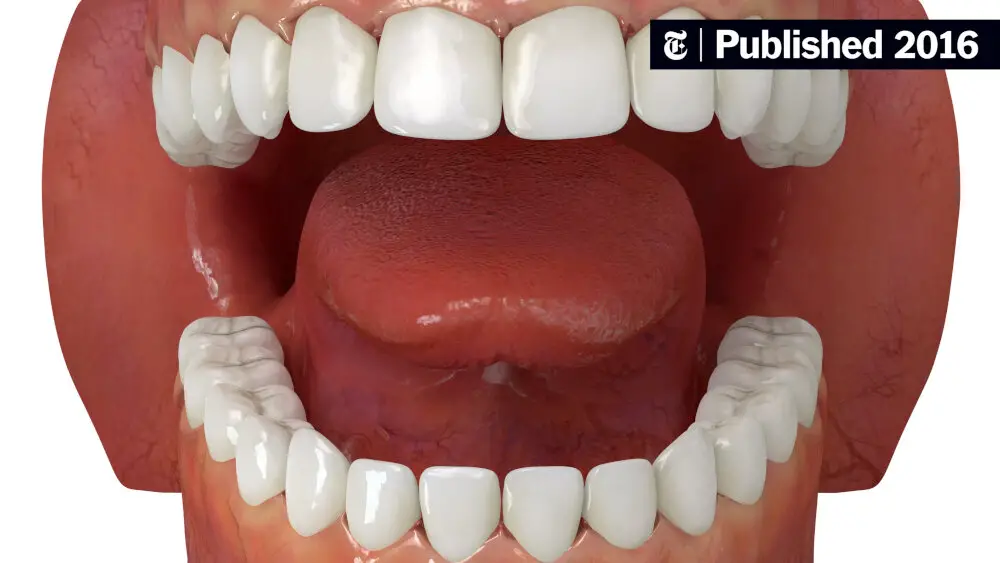
One of the most effective ways to deal with teeth pain when biting down is through prevention. This means taking measures to avoid the root causes of the problem, such as tooth decay or gum disease. Brushing your teeth twice a day with fluoride toothpaste and flossing regularly can go a long way in preventing tooth decay and gum disease. Additionally, avoiding sugary and acidic foods and drinks can help keep your teeth healthy and strong. Regular dental check-ups and cleanings are also crucial for detecting any potential issues early on and addressing them before they become more severe. By adopting good oral hygiene habits and making healthy lifestyle choices, you can significantly reduce your risk of experiencing teeth pain when biting down. Another crucial aspect of prevention is addressing any underlying medical conditions that may be contributing to the issue. For example, if you have bruxism (teeth grinding), your dentist may recommend wearing a mouthguard to protect your teeth. Similarly, if you have a misaligned bite, orthodontic treatment may be necessary to correct the problem. By working with your dentist to identify and address any underlying issues, you can prevent teeth pain when biting down and maintain good oral health for years to come. Ultimately, prevention is key when it comes to teeth pain, and taking proactive steps to care for your teeth and gums is the best way to avoid discomfort and maintain a healthy smile.
Regular dental checkups are crucial for maintaining good oral health and preventing tooth pain when biting down. Teeth are constantly exposed to various elements such as bacteria, acids, and plaque that can cause tooth decay and gum disease. Regular checkups with a dentist can help identify any potential issues early on before they become more serious problems. During a dental checkup, a dentist can perform a thorough examination of the teeth and gums, take x-rays, and provide advice on proper oral hygiene practices. By visiting the dentist regularly, individuals can take proactive steps to maintain their oral health and prevent tooth pain when biting down.
Brushing and flossing regularly are essential habits to maintain good oral hygiene, prevent tooth decay, and avoid painful sensations while biting down. Brushing twice a day with fluoride toothpaste helps remove plaque, bacteria, and food particles that accumulate on teeth and gums. Flossing at least once a day is necessary to remove food debris from between teeth and prevent the buildup of tartar, which can cause gum disease and tooth sensitivity. Neglecting these habits can lead to dental problems such as cavities, gum disease, and toothaches. Therefore, it’s crucial to make brushing and flossing a part of your daily routine to keep your teeth and gums healthy and pain-free.
Mouthguards are an essential accessory for athletes who participate in contact sports such as football, boxing, and hockey. These sports come with a high risk of dental injuries, including broken teeth, chipped teeth, and even tooth loss. Mouthguards provide a cushioning effect that helps to absorb the impact of a blow to the face or jaw. In addition, mouthguards can also be used to prevent teeth grinding, a condition that affects many people during sleep. Teeth grinding, also known as bruxism, can cause wear and tear on teeth, leading to sensitivity and pain. Wearing a mouthguard while sleeping can help to protect teeth and reduce the symptoms of bruxism.
One of the most common causes of tooth pain when biting down is due to hard or sticky foods. These types of foods can cause damage to the teeth, including cracks, chips, or even breakages. Hard foods such as popcorn kernels, ice, and hard candy can weaken the structure of the teeth and cause sensitivity, pain, and discomfort. Sticky foods such as caramel, taffy, and chewing gum can get stuck to the teeth and cause damage when attempting to remove them. To avoid these issues, it is important to limit the consumption of hard and sticky foods and opt for softer and easier to chew alternatives. Additionally, maintaining a proper oral hygiene routine and regularly visiting the dentist can help prevent tooth pain and ensure overall dental health.
While teeth pain when biting down can be a result of various reasons, one of the major culprits can be stress. Stress can cause tension in the jaw and lead to clenching or grinding of teeth, which can result in pain while biting down. Therefore, managing stress levels is crucial to prevent such discomfort. Regular exercise, meditation, and deep breathing techniques are effective stress management tools. Additionally, limiting caffeine and alcohol intake and getting enough sleep can also help reduce stress levels. By adopting healthy stress management habits, one can not only prevent teeth pain but also improve their overall well-being.
There are several causes of tooth pain when biting down, including tooth decay, cracked teeth, gum disease, and bruxism. Tooth decay can be prevented by practicing good oral hygiene, such as brushing twice a day and flossing daily, while cracked teeth may require dental treatment such as a crown or root canal. Gum disease can be prevented by maintaining healthy gums through regular dental checkups and cleanings, while bruxism can be managed with a custom mouthguard. In order to alleviate tooth pain when biting down, it is important to identify the underlying cause and seek appropriate treatment from a dental professional.
It is crucial to seek professional help if you experience persistent pain when biting down. Ignoring the pain can lead to further damage, including tooth decay and gum disease. A dental professional can accurately diagnose the cause of the pain and recommend the appropriate treatment. It is essential to remember that pain is a warning sign from your body that something is wrong. Therefore, seeking professional help is the best way to prevent long-term damage and ensure that you receive the necessary treatment to alleviate the pain. Additionally, dental professionals can provide guidance on preventative measures to protect your teeth from future damage and maintain good oral health.
Tooth pain can be a real nightmare, especially when it strikes while biting down. One of the most effective ways to avoid future tooth pain is to focus on preventive measures. This includes maintaining good dental hygiene, such as brushing and flossing regularly, as well as visiting the dentist for regular check-ups and cleanings. Additionally, avoiding hard or chewy foods that can put a strain on your teeth and wearing a mouthguard when playing sports or grinding your teeth can also help prevent future tooth pain. By taking these preventive measures, you can avoid the discomfort and inconvenience of tooth pain and maintain good oral health for years to come.
Conclusion
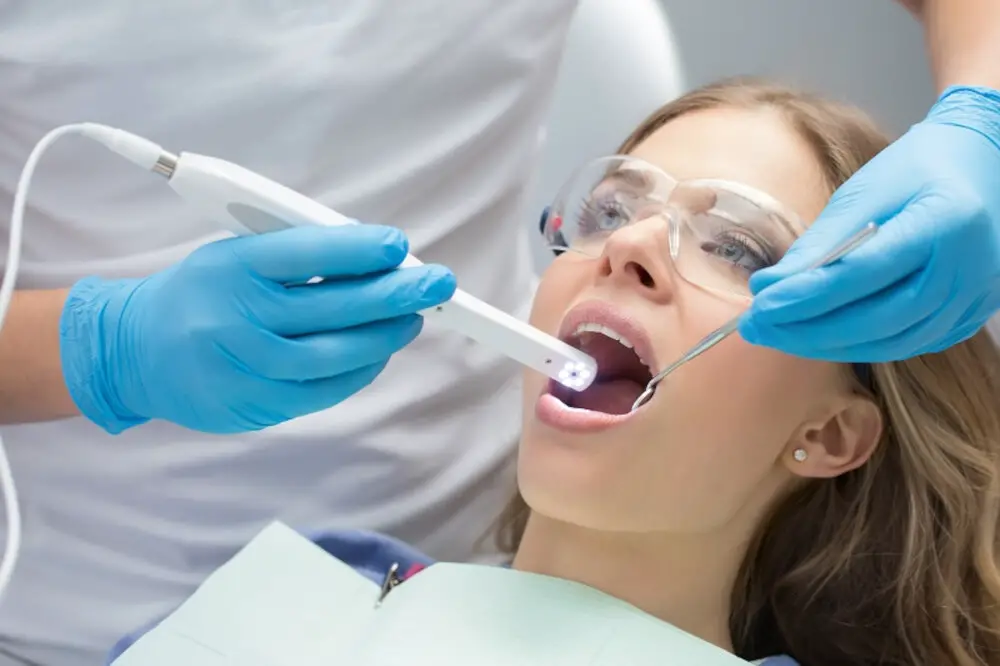
In conclusion, tooth pain while biting down can be caused by various factors such as tooth decay, cracked or broken teeth, gum disease, teeth grinding, or even sinus infections. It is important to seek professional dental assistance if you experience persistent tooth pain, as it could lead to more severe oral health problems. Remedies for tooth pain include proper oral hygiene, avoiding hard or sticky foods, using a mouthguard for teeth grinding, and seeking dental treatment such as fillings, crowns, or root canals. Ultimately, maintaining good oral health through regular dental checkups and proper hygiene practices can prevent tooth pain and promote overall oral health.


